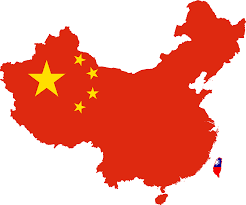While global investors fixate on Beijing’s headline economic targets, a less obvious combination of advanced materials and holidaymakers has begun to redraw market expectations.
The renewed focus on China’s rare-earth producers and domestic tourism operators has infused fresh momentum into equity trading across Shanghai and Hong Kong. Investors who had grown cautious amid a sluggish property sector and lingering debt concerns have found a new narrative in companies harnessing China’s control over essential minerals alongside those tapping a pent-up appetite for travel. The result is a market dynamic that feels both familiar in its scale and surprising in its drivers.
In Shanghai, the CSI 300 index has climbed steadily through July, propelled not by megacaps alone but by a broader swathe of mid-cap names linked to rare-earth extraction. Firms specialising in neodymium and praseodymium processing have seen their share prices surge by double digits this month, as global buyers anticipate tighter export controls and rising demand for magnets used in electric vehicles and wind turbines. Investors are closely watching how Beijing’s long-term strategy to secure supply chains for critical materials might translate into higher earnings. At the same time, margin lending has reached multi-month highs, signalling that leveraged capital is once more at work across sectors that had been dormant for much of the year.
Meanwhile, the travel sector is experiencing a rebound reminiscent of the rapid post-lockdown recovery witnessed in other parts of the world. Chinese holidaymakers, eager to make up for lost time, are flocking to domestic destinations from Hainan Island to historic sites in Xi’an. Hotel operators and online travel agencies have benefited accordingly, with shares of leading domestic platforms rising by more than 8 per cent over the past fortnight. This tourism uptick has extended beyond leisure, as business-travel volumes pick up and conference bookings climb, reinforcing the case that consumer confidence is rebounding on more than anecdotal evidence.
Augmenting these sector-specific gains is a backdrop of easing trade tensions between Beijing and Washington. Recent dialogue at senior levels has produced confirmation of a 90-day truce on new tariffs, removing a cloud that had hung over import-export volumes since late last year. This diplomatic thaw has heightened investor conviction that policy risk is receding, encouraging capital allocation into Chinese equities once more. Notably, Hong Kong’s Hang Seng index has tested levels not seen since early 2021, underscoring the extent to which offshore listings are benefiting from renewed optimism.
Government initiatives have lent further support. In addition to targeted measures to stabilise property markets, authorities have issued guidance aimed at curbing overly aggressive price competition among state-owned enterprises, which many analysts view as an implicit nod to margin protection. Infrastructure approvals, such as a newly sanctioned hydropower project in Tibet, have also injected fresh impetus into heavy-engineering stocks. Taken together, these policy moves reinforce the sense that a coordinated effort is underway to shore up growth without resorting to broad-based stimulus that might exacerbate debt levels.
Fidelity China Special Situations PLC (LON:FCSS), the UK’s largest China Investment Trust, capitalises on Fidelity’s extensive, locally-based analyst team to find attractive opportunities in a market too big to ignore.






































